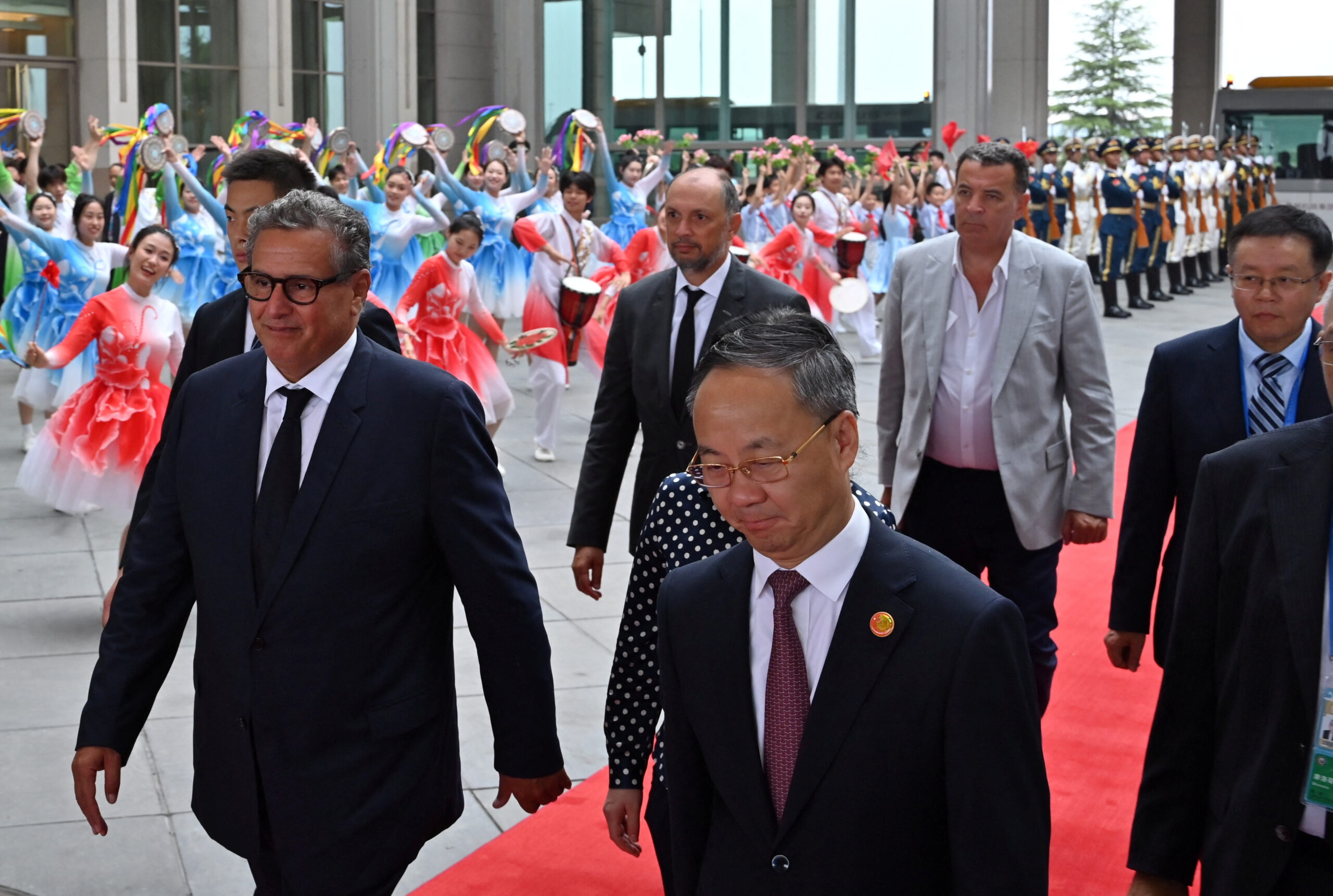
China is currently hosting African leaders, and the emphasis is on the funding needs and debt woes
This week, a summit between China and Africa will be held in Beijing. The continent is in the process of recovering from a series of defaults and is currently in the process of establishing its future partnership with the Asian nation that is partially responsible for its debt spree and is currently experiencing its own economic challenges.
In the past few years, the geopolitical competition between global powers such as the United States, Europe, and China has centered on Africa, which has a population of over 1 billion and a wealth of mineral and hydrocarbon resources.
“The visiting heads of state are expected to convey expectations of a significant concession on debt restructuring,” stated Yunnan Chen, a research fellow at the UK-based think tank Overseas Development Institute, given that China is now Africa’s top bilateral lender.”
She speculated that the outcome would be somewhat more subdued, noting that China has been “recalcitrant” regarding the debt issue as a result of the intricate network of state lenders and other institutions.
Although the specifics of the agreements reached, or the conditions of the original loans, are still scarce, China has historically prioritized the extension of maturities over the cancellation of debts when restructuring.
Although the Paris Club of creditor nations, the International Monetary Fund, and the World Bank have decades of experience in facilitating debt restructuring proceedings for impoverished nations, China’s lending to Africa garnered attention during the pandemic.
In 2000, the Forum for China-Africa Cooperation (FOCAC) was established and assumed a more significant role following the 2013 inception of President Xi Jinping’s Belt and Road Initiative (BRI), which is designed to reestablish the ancient Silk Road.
The 2015 FOCAC saw China unveil a $60 billion financing program, which was subsequently repeated in 2018. Beijing’s transition to trade and investments was heavily influenced by domestic financial pressures, the onset of COVID-19, and a commodities collapse that impacted African economies by the 2021 summit in Dakar.
STALLED PROJECTS
Loans totaling $4.61 billion were approved by Chinese lenders to Africa last year, marking the first annual increase in seven years. However, this figure remains substantially below the 2016 peak.
Incomplete railways and roads, such as a $450 million highway connecting the capital of Cameroon, Yaounde, to Douala, and Kenya’s modern railway line to Uganda, have been left behind as a result of the cessation of revenue flow.
The challenge for African leaders seeking to stimulate development has been exacerbated by the sluggish government revenues, increasing debt repayments, and unrest in Kenya and Nigeria that is fueled by inequality.
$100 billion is the annual infrastructure financing deficit in Africa, according to the African Development Bank.
A significant increase in infrastructure connectivity, including roads, railways, and bridges, is necessary for the establishment of the African Continental Free Trade Area, a gigantic trade bloc.
“The current challenge in Beijing is the completion of the projects that have already commenced,” stated Peter Kagwanja, a Kenyan international relations expert.
High debt burdens and a reduction in fiscal space are also prominent issues.
Zambia’s external debt was 20% owed to China prior to its successful completion of a protracted restructuring in July. Ethiopia is also stuck in a rework, and China plays a significant role in the country.
Compared to Ghana and Chad, which advanced more rapidly through restructurings under the G20’s Common Framework, Beijing’s role as a lender was significantly reduced.
“The Global Development Policy Centre at Boston University stated last week that the maintenance of strategic relationships in Africa is essential for China’s long-term objectives, but Africa’s debt challenges necessitate risk mitigation.”
Beijing arranges a portion of its lending, such as that to Angola, as controversial resource-backed loans.. Countries such as Uganda decline those agreements due to concerns that future generations would be disadvantaged.
Recent data indicates that China is implementing a novel approach to circumvent debt-laden economies by collaborating with African multilateral institutions. Two of the 13 Chinese loan agreements that were approved last year were with the African Export-Import Bank, a regional development institution.
Minerals and avocados
By the conclusion of 2024, Beijing pledged to increase imports from Africa to $300 billion at the 2021 FOCAC. The total amount of $305.9 billion in the two-and-a-half years leading up to July of this year, as reported by China’s foreign ministry, has already surpassed the objective.
Mao Ning, a spokesperson for the foreign ministry, stated at a news conference in Beijing that China has consistently prioritized the implementation of the Forum on China-Africa Cooperation’s outcomes.
However, the challenge of diversifying imports is challenging.
In countries such as Botswana, Namibia, Zambia, Zimbabwe, and the Democratic Republic of the Congo, imports were biased in favor of mineral sectors, according to a Reuters Analysis.
During his meeting with his Chinese counterpart on Monday, South Africa’s President Cyril Ramaphosa emphasized the importance of promoting balanced trade in anticipation of the summit’s commencement.
For instance, Kenyan avocado producers have chosen to export their produce to the European Union, where they are permitted to do so without incurring a 30% duty. Nevertheless, China has expanded its extensive market to include their product.
Additionally, it is uncertain how much additional funding from Beijing will be forthcoming.
Analysts contend that countries like Kenya, which is seeking funding to finalize its $5 billion railway project, or Angola, which is seeking financing to diversify its economy, may fail to secure the necessary funds.
“China will intensify its pursuit of information exchange and the maintenance of relationships with Africa.” “A significant number of conversations will be bilateral, and information will be concealed,” stated Fred Muhumuza, a lecturer at the business school of Makerere University in Kampala. “There will be no increase in loans.”
All Categories
Recent Posts
Tags
+13162306000
zoneyetu@yahoo.com



